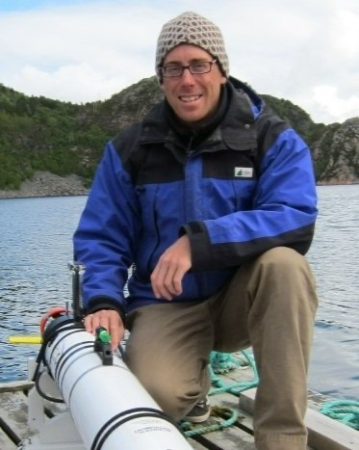
Abstract:
Over the last 50 years, autonomous robots have made the leap from being novel research contributions in university labs to becoming the fundamental technology upon which companies are built. While they traditionally have belonged to the engineering and computer science disciplines, robots have now crossed into other areas of study and research – making impacts in oceanography, geology, archaeology, biomechanics and biology. To exemplify these crossovers, the speaker will discuss several interdisciplinary projects that his research team have contributed to: altruistic robotics, underwater archeology, autonomous shark tracking, and education. These projects not only showcase several technical aspects of traditional robotics including motion planning, machine learning, state estimation, systems integration, and control theory, but also highlight the impact of interdisciplinary research and education.
Bio: Christopher Clark is research scientist at Apple, and has been a Professor at Harvey Mudd College since 2012. Before joining HMC’s faculty, he served as a faculty member at the University of Waterloo and California Polytechnic State University, San Luis Obispo. Clark is a Fulbright Scholar and for the 2011–2012 academic year, he held the William R. Kenan, Jr. Visiting Professorship for Distinguished Teaching at Princeton University. In 2004, he was a first hire at the startup company Kiva Systems (now Amazon Robotics), which changed warehouse management via multi-robot systems. He earned his undergraduate degree in engineering physics from Queen’s University, Canada, a master’s in mechanical engineering from the University of Toronto and a PhD in aeronautics and astronautics with a minor in computer science from Stanford University. Clark’s research areas include multi-robot systems, underwater robot systems, applied ML, control theory, intelligent vehicles, state estimation and motion planning.
